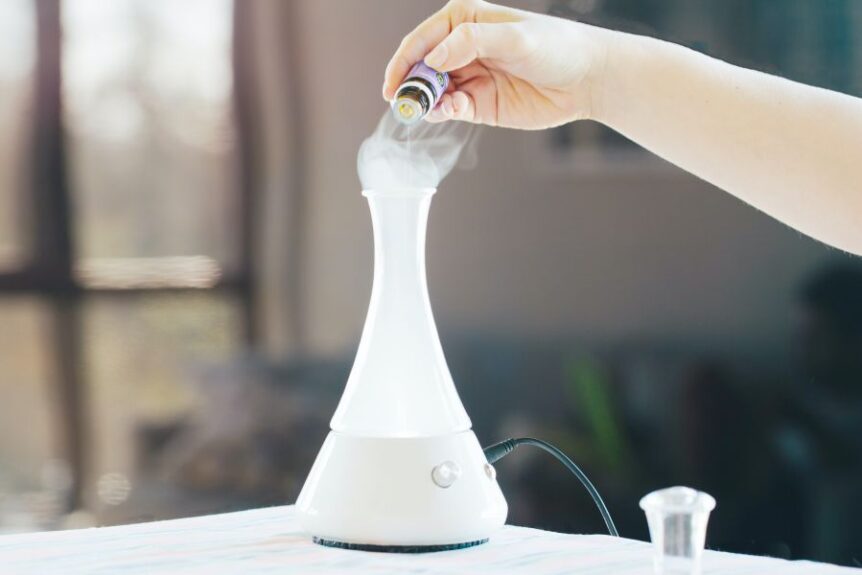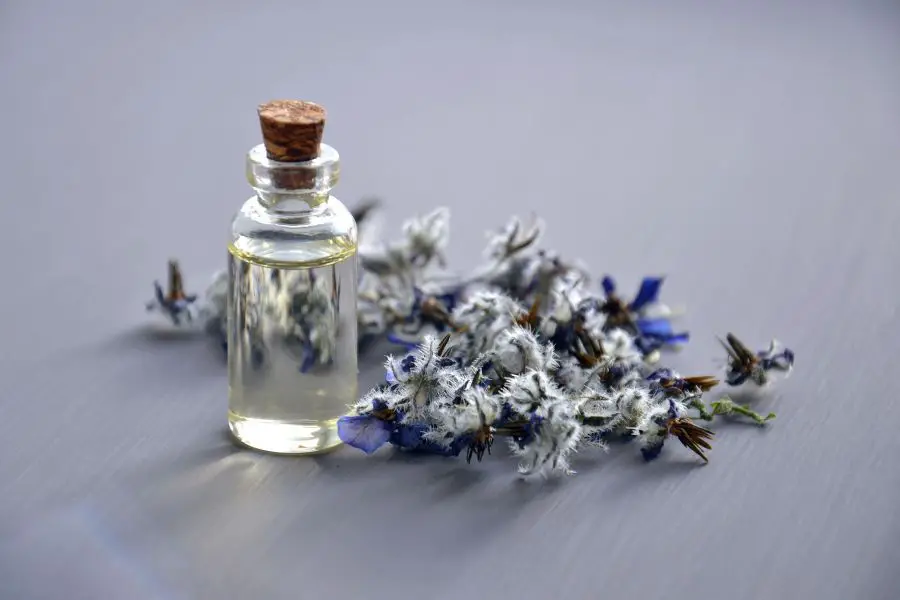
Besides using them for our beauty routines, improving focus, and relieving stress, studies have shown essential oils can also help purify indoor air. If you heard they can clean air and you are wondering how to use them to do so, then stick around, this post is for you.
Before we dive into the details, briefly put, how can air be purified with essential oils? Air can be purified using essential oils through various methods that disperse them into the air. The most common approach is to use an electronic diffuser. Once dispersed into the air, due to their antiviral and antibacterial properties, essential oils clean the air in the same way disinfectant sprays do.
Based on my brief answer, you might want to immediately rush out and get a diffuser and fill it with essential oils so you can start cleaning your air already. Not so fast. There are several things you have to note, especially from a safety perspective.
To help you properly use essential oils for cleaning your air in this post I pretty much cover all the important details you need to know about this. So, be sure to read through this post to avoid unnecessary headaches and to optimally clean your air with essential oils.
How Do Essential Oils Clean The Air?
Before you try messing around with essential oils to clean or purify your air, the first thing you have to understand is how they actually purify your air. The way they clean your air is actually very simple.
Essential oils pretty much work like disinfecting aerosols or chemical air sanitizers. They have antibacterial, antifungal, and antiviral properties that fight airborne contaminants when you spray or diffuse them around your home or workspace.
Essential oils also clean your air by getting rid of poor odor through their aromatizing properties. Their cleaning properties help reduce airborne mold and all kinds of microorganisms in your indoor air.
However essential oils are quite limited when it comes to air pollutants like pet dander, fur, dust, and some VOCs like formaldehyde, acetaldehyde, acetone, and methanol. They won’t help with elevated levels of lead, asbestos, and radon in your home. In fact, sometimes essential oils release some harmful VOCs in your home that worsens your air quality.
Scientific studies have shown the usefulness of essential oils in dealing with airborne influenza and all kinds of respiratory pathogens. Due to their properties, they can kill live cells of germs, viruses, and bacteria around your home.
They have also been found to be able to weigh down dust and other floating particles like pollen and fur and settle them on the floor and surfaces.
However, you have to be very careful which essential oils you use to purify your air as some may prove too strong and toxic for you to inhale and cause you more harm than good. Accordingly, next, I am going to show you some recommended options you can use to safely clean your air.
7 Essential Oils That Will Clean Your Air
As I have alluded to earlier, there are plenty of essential oils that can clean your air. However, you should be very careful about which ones you use as some can be toxic and should not be inhaled.
The oils you should go for to safely clean your indoor air include:
- Tea Tree – Melaleuca Alternifolia
- Eucalyptus – Eucalyptus Globulus
- Lime – Citrus Aurantiifolia
- Lavender – Lavender Angustifolia
- Thyme – Thymus Vulgaris
- Basil – Ocimum Basilicum
- Lemongrass – Cymbopogon
Let’s look at each of them in a bit more detail.
1. Tea Tree Essential Oil For Air Purification
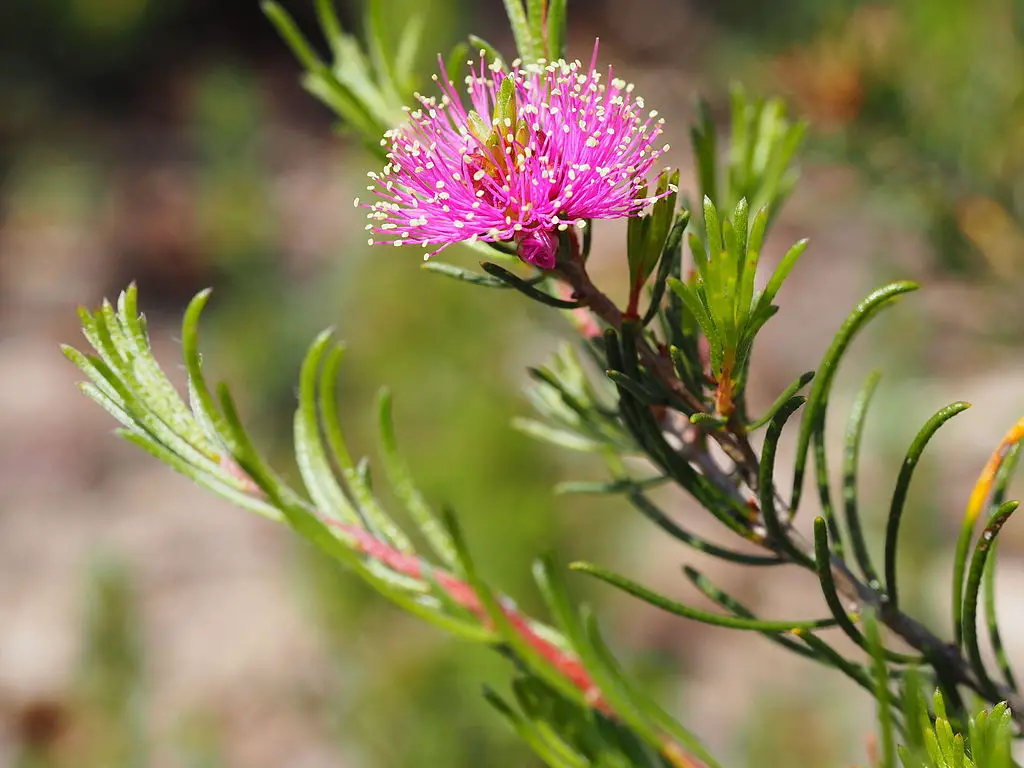
Tea Tree essential oil is known for getting rid of germs in your air that cause flu and cold during influenza season. It also works well for certain airborne spores, including mold, and for allergens. It’s a powerful disinfectant and can help freshen up the air when dispersed in a new apartment. For some high-quality Tea Tree essential oil click here
2. Eucalyptus Essential Oil For Air Purification
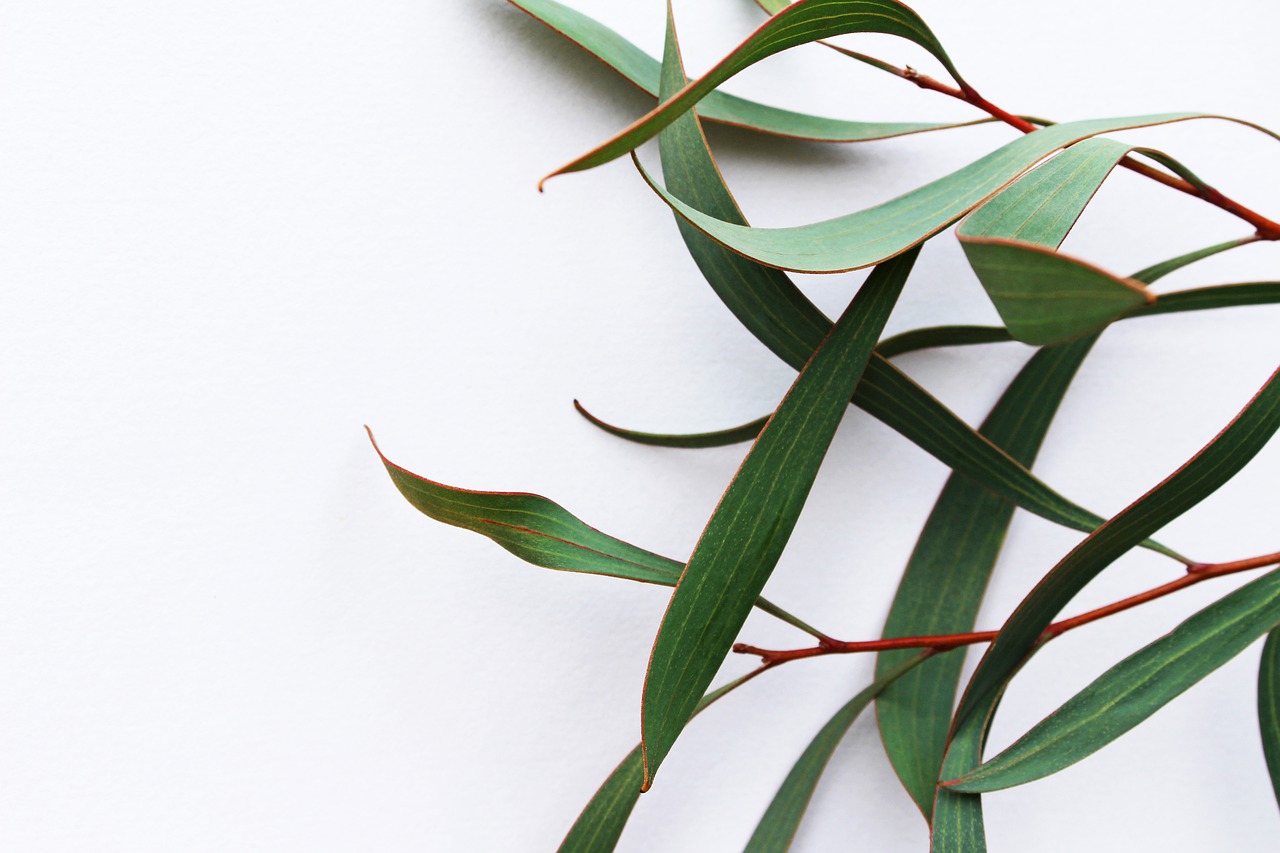
Eucalyptus is well known for its health benefits and wide use as a natural remedy for many ailments. For example here is a study that highlights its benefits against airborne tuberculosis and here is another study showing the benefits of inhaling it for multiple respiratory issues including COPD.
Beyond cleaning your air as it has strong antimicrobial properties Eucalyptus also supports your breathing. Accordingly in my opinion it’s the superman essential oils when it comes to cleaning the air. For some high-quality Eucalyptus essential oil click here.
3. Lime Essential Oil For Air Purification
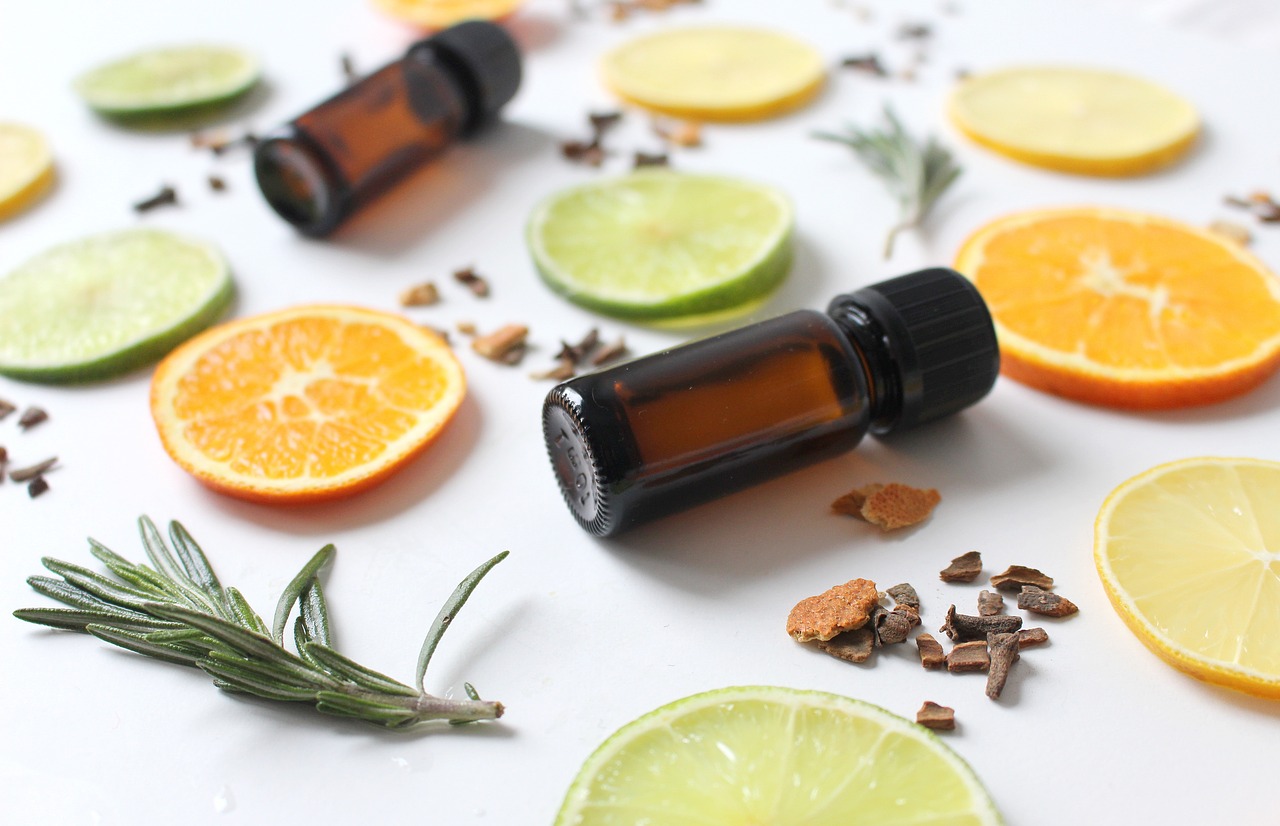
Lemon and Lime essential oils can pretty much be used interchangeably. Both have strong airborne germs fighting ability. Lemon however has a strong lingering citrusy scent.
Like lemon, lime essential oils are good for use against both gram-negative and gram-positive bacteria. Lime essential oils destroy toxins and various germs in your air within minutes of being dispersed in your air. To check out some high-quality lime essential oil click here.
4. Lavender Essential Oil For Air Purification

As a major essential oil in aromatherapy, lavender is also very important for air purification. It is very effective in dealing with airborne fungi and bacteria. For some high-quality air-purifying lavender oil click here.
5. Thyme Essential Oil For Air Purification

Thyme is the air-purifying essential oil for you if seasonal allergies and illnesses commonly occur in your household. It’s the source of thymol, a powerful antifungal substance. Thyme is a good disinfectant against airborne mold and also quite effective for airborne bacteria. For some high-quality air-purifying thyme essential oil from Amazon, click here.
6. Basil Essential Oil For Air Purification

Basil is not only a tasty herb but also a healing herb. It helps with respiratory issues and even ear infections. Some studies show it can even fight some drug-resistant bacteria.
It is one of the stronger essential oils for freshening up air and dealing with odors. With its strong antiviral and antibacterial properties, it’s potent against viruses and bacteria in your air. For some high-quality air cleaning basil essential oil from Amazon you can click here.
7. Lemongrass Essential Oil For Air Purification
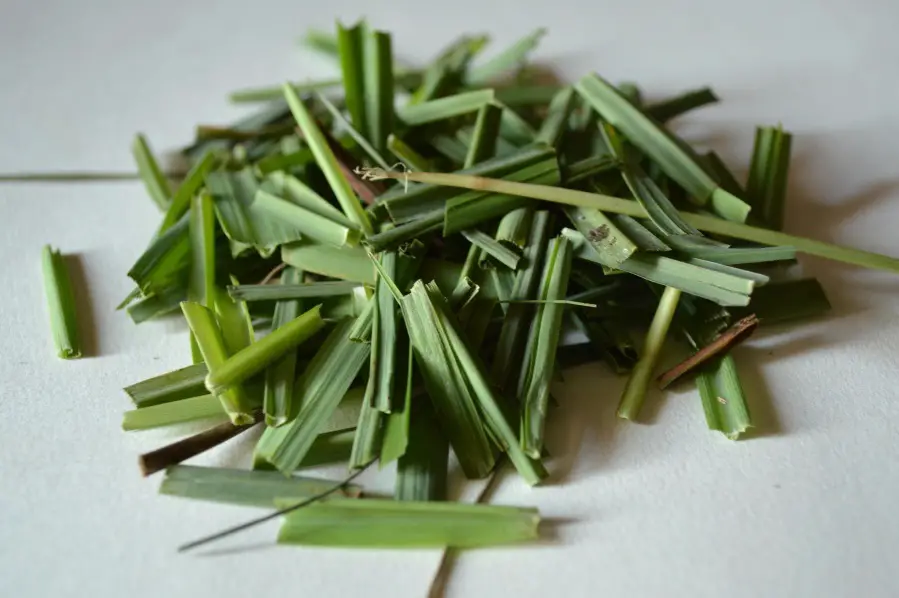
Lemongrass is another plant that’s known to relieve many ailments. A very comprehensive study shows its effectiveness in killing antibiotic-resistant bacteria including MRSA by diffusing it into the air. It’s certainly another air-purifying essential oil to stock up on. For some high-quality lemongrass essential oil, you can click here.
So this is my list of seven of the most effective and safest essential oils you can use for cleaning your air. Besides these oils I have touched on, apparently, conifers oils like fir, spruce, and pine are also very useful safe options for air purification.
They are useful because they contain pinene which is well documented for its antibacterial properties. These oils are also very good for supporting and clearing your lungs besides defending you from airborne bacteria.
The other thing you can do with essential oils that are safe for purifying your air is to blend them to get the benefits of the different oils at the same time. For example, Eucalyptus can be blended with lemon, lime, thyme, or lavender.
Tea Tree essential oil can be blended with lemon or lemon/lime or lemongrass oil. There are obviously other safe oils you can try for cleaning your air, but with the seven above you have more than enough to make a safe choice from. Next, let’s look at how you actually use these oils.
9 Effective Ways To Purify Air With Essential Oils
Once you have found an essential oil to clean your air with, the next step is to actually use it. Most people turn to electronic diffusers but there are actually several other ways you can try or even add on to using your diffuser.
1. Use An Electronic Diffuser
The main way to clean the air in your home with essential oils is by using an electronic diffuser or as everyone calls them simply, a diffuser. You are spoilt for choice when it comes to diffusers.
You can get either a diffuser humidifier combo or plain diffuser or even a waterless diffuser. Diffusers that use water are usually called ultrasonic diffusers while waterless ones are called nebulizers. You can get some good quality essential oil here at Guru Nanda. Another awesome electronic diffuser for essential oils I found on Amazon is the Pure Daily Care Pure Essence Diffuser. Check out the video below for more details about it.
To use a diffuser, simply add a few drops of the essential oil in your diffuser’s tank and the recommended amount of water if you are using a water-based diffuser.
2. Use A Tea Candle Diffuser
This kind of diffuser is very basic and is normally a ceramic housing with a saucer-like roof and under the roof, you can place a small candle to heat up the saucer. You then place a few drops of essential oil on the saucer and it evaporates into your air.
3. Use A Reed Diffuser Kit
A reed diffuser is simply a bunch of absorptive sticks in a jar which when saturated with scented oils release them into your indoor air. To use them with essential oils, you first have to mix your essential oil with a carrier oil like coconut or almond oil.
The recommended mix is 20-2 drops of essential oil with a ¼ cup of carrier oil. Once you have mixed your oils then place them in your reed diffuser kit. Place the reeds inside and occasionally turn them around to get the oils flowing. One mix should continue to purify your air for at least 2 weeks.
4. Use Them As A Room Spray
To make an essential oil air purifying spray you need to mix anywhere from 15 to 25 drops of your chosen essential oil with about 55ml of water and a tablespoon of vodka or grain alcohol. Some people also use witch hazel instead of alcohol to get the essential oil and water to mix better. Check out the video below for some guidance.
5. Mix Them In Wax Melts
Wax melts are easy to make. To make essential oil wax melts, you simply add drops of essential oil to your wax melt when you leave the wax melt to cool and solidify. You can learn how to make wax melts from The Hippy Homemaker here.
The video below also shows how to make and use wax melts. Once you have your wax melt ready, you use it by melting it over a tea candle diffuser.
6. On Cotton Balls In A Vacuum Cleaner
A great trick with essential oils is to make about 5 cotton balls, saturate each of them with essential oils and place them inside your vacuum cleaner around the canister area just before the bag of your vacuum cleaner.
Do this before you vacuum your home. Then when you vacuum, you will disperse the essential oil into your carpets and on your floors. They will off-gas around your home and clean your air in the process.
7. On Cotton Balls In Cabinets And Drawers.
Similar to what I just showed you for vacuum cleaners, you can saturate cotton balls with essential oils to place them in your cupboards, cabinets, and wardrobes. They will kill mold, mildew, chase away certain insects and pests and keep the air in these spaces fresh.
8. Mix Essential Oils In Cleaning Solutions
You can mix your essential oils with some eco-friendly cleaning chemicals. Add 10 drops of any air purifying essential oil of choice to a cleaning solution and use it to clean around your home as you normally do. This will allow the essential oil to off-gas into your home, leaving behind their fresh fragrance while at the same time slowly killing off some air contaminants.
9. Boil Essential Oils On A Stove Top
Add 2 to 5 drops of an air-purifying essential oil to a pot of water and bring it to boil on a stovetop. Let the water simmer and as it does, the steam will disperse around your home carrying essential oils. In the form of vapor, these essential oils will then get rid of some airborne contaminants around your home.
There you have it. You now know how to clean the air in your home with essential oils in 9 different ways. The most important of these 9 approaches, if you are serious about purifying the air with essential oils, is to use a diffuser. Ideally, once I have my diffusers in place, I would then add on the other methods.
Precautions When Purifying Air With Essential Oils
I think I briefly mentioned the potential dangers of using essential oils for cleaning air earlier. To ensure you keep safe with them, I just thought to mention a few other precautions you should note.
Firstly, essential oils are quite potent and it’s widely advised by experts who use them to completely avoid using them when you are pregnant. There are essential oils for kids, but you also want to avoid using them when you have kids younger than 10 years old in your home.
Another thing is you may also find that you are reacting to the oils in your air. This happens largely when people use too many drops in their diffusers. You may find you have a runny nose, watery eyes, a throbbing headache.
If that happens it’s advised you stop using essential oils immediately. You can try your diffuser or whatever method you are using to clean your air again with a lower dose of essential oil. However, if you react, seek expert advice, and see your doctor make sure your response is not an allergic reaction and that you can continue to use essential oils.
The other thing to note is that if you use your diffuser for longer than 60 minutes at once, your essential oils will eventually start to produce toxic Volatile Organic Compounds (VOCs). Given this, the safest length of time to run your diffuser for is 15 to 30 minutes and you can run it 3 times a day.
I know I mentioned pinene as beneficial, but the experts say too much of it can be burdensome for your respiratory system. So watch out for this with essential oils containing pinene.
Ultimately if you try out essential oils to clean your air and you fail to get a good experience with them, I think you are better off without them. Do not despair though if you were counting on them to get your air clean.
There are safer alternatives to keep the air in your home clean. My take is that you turn to air purifiers for a safer way to clean your air.

